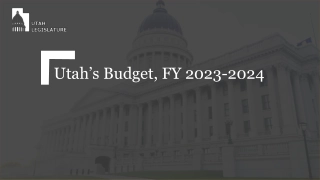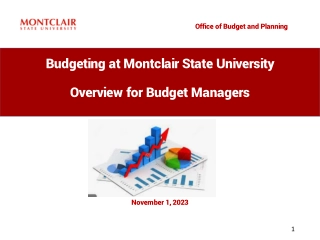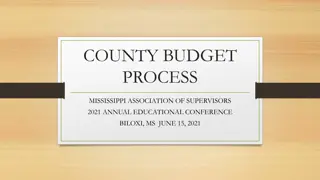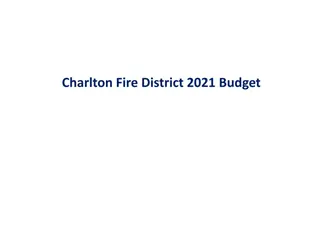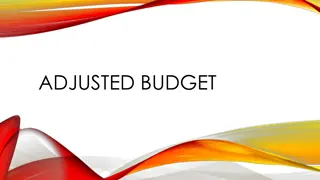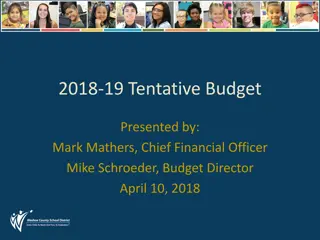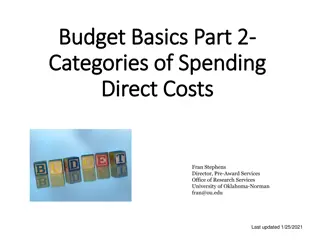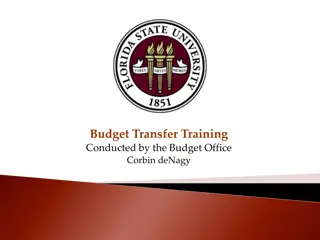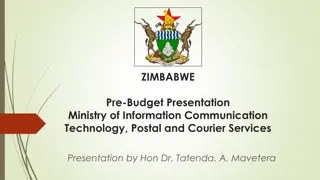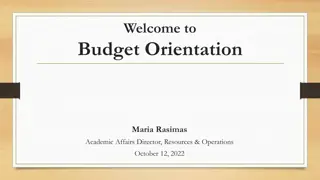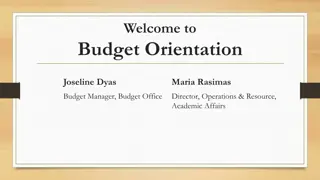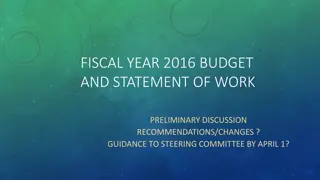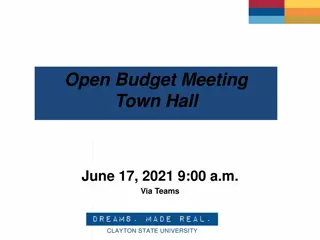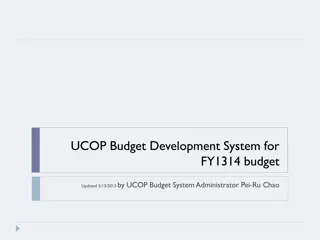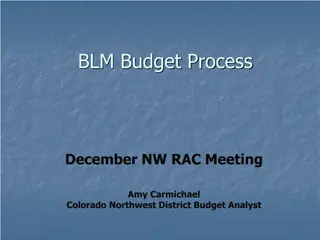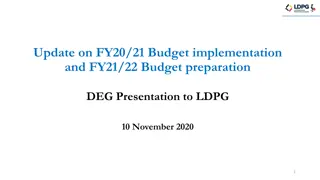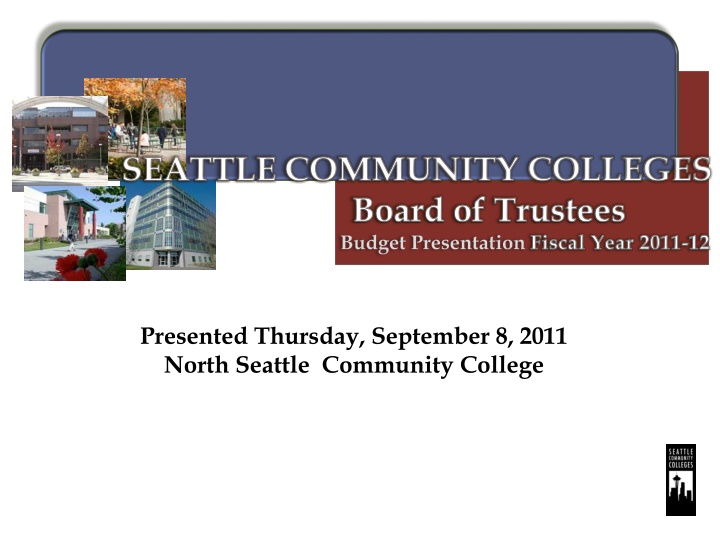
Seattle Community Colleges Board of Trustees Budget Presentation 2011-12
Explore the budget presentation for Seattle Community Colleges' fiscal year 2011-12, focusing on mission, strategic goals, budget planning process, enrollment targets, funding challenges, and district-wide initiatives. Learn about the budget planning process, strategic goals, and recommendations for process efficiencies and revenue generation.
Download Presentation

Please find below an Image/Link to download the presentation.
The content on the website is provided AS IS for your information and personal use only. It may not be sold, licensed, or shared on other websites without obtaining consent from the author. If you encounter any issues during the download, it is possible that the publisher has removed the file from their server.
You are allowed to download the files provided on this website for personal or commercial use, subject to the condition that they are used lawfully. All files are the property of their respective owners.
The content on the website is provided AS IS for your information and personal use only. It may not be sold, licensed, or shared on other websites without obtaining consent from the author.
E N D
Presentation Transcript
SEATTLE COMMUNITY COLLEGES Board of Trustees Budget Presentation Fiscal Year 2011-12 Presented Thursday, September 8, 2011 North Seattle Community College
Focus of Presentation Focus of Presentation What is Our Mission? Strategic Goals to Accomplish Mission Budget Planning Process Used Enrollment Targets/ FTE History Funding Available to Reach FTE Targets Challenges
Seattle Community College District MISSION Seattle Community Colleges will provide excellent, accessible educational opportunities to prepare our students for a challenging future
District-wide & District Office Strategic Plan -- 2010-2015 District-wide Strategic Goals Goal 1: Student Success Increase Student Learning and Achievement Goal 2: Partnerships Build Community, Business & Educational Partnerships Goal 3: Innovation Increase Innovation & Improve Organizational Effectiveness District Office Strategic Goals Goal 1: Support College Priorities and Initiatives Goal 2: Ensure Business Systems/Processes are Effective, Efficient, and Responsive Goal 3: Increase Awareness of the Significant Impact of the Seattle Community Colleges
Budget Planning Process Chancellor Reconvened District Budget Planning Committee Colleges/District Office Planned for 10% cut beginning in January Colleges/District Office used Similar Planning Processes Anticipated cuts of up to $8.2 mil for District Colleges/District also needed to account for the FY 10-11 3.8% supplemental cut
District-wide Budget Committee Recommendations Process Efficiencies Centralization Revenue Generation Examination of part-time/full-time faculty Collaboration
District-wide Budget Committee Recommendations PROCESS EFFICIENCIES Further restructuring of management positions and departments across the district and within colleges Streamlining, centralizing and/or automating enrollment processes to give students greater ability to enroll at more than one of our campuses Examine the effectiveness of the use of S&A fees and the transparency of the process for the allocation of these funds at all campuses
District-wide Budget Committee Recommendations PROCESS EFFICIENCIES (previous recommendations) More efficient use of space and buildings; continuation of the goal to increase sustainable practices Minimize the use of outside consultants and contractors Increase the use of electronic forms
District-wide Budget Committee Recommendations CENTRALIZATION (previous recommendation) Increased centralization of back office functions
District-wide Budget Committee Recommendations REVENUE GENERATING Examine the reliance on soft money (i.e., international students) while keeping mindful of the district s mission Local taxing authority, competing for levy funds
District-wide Budget Committee Recommendations REVENUE GENERATING (previous recommendations) Pursue more grants & charge indirect costs Explore differential tuition & fees, and flexibility in utilizing fees for state-support classes
District-wide Budget Committee Recommendations COLLABORATION (previous recommendation) Move to common placement testing standards
SEATTLE COMMUNITY COLLEGES Board of Trustees Budget Presentation Fiscal Year 2011-12 Now for the Numbers Alan Ward Interim Financial Officer
What Does the Budget Picture Look Like?
Budget for 2011-13 Biennium Legislature dealt with $ 5 bil revenue shortfall Couldn t raise taxes-initiative I-960 State appropriations were cut Legislature reduced CTC funding by $76.8 mil or 11.5% for FY 2011-12 $84.3 mil or 12.6% for FY 12-13 (1.1% more) CTC current State funding drops from $669mil to $585 mil in FY12-13
2009-11 Sources of State General Fund Revenue (Dollars in Billions) Category Amount 13.1 $ Pct. 46.7% Retail Sales Business & Occupations Tax $ 5.6 19.9% Property $ 3.6 12.9% Real Estate $ 0.8 2.8% Public Utility $ 0.7 2.6% Other $ $ 4.2 28.0 15.1% 100.0%
How is General Fund Money Spent? 2009-11 General Fund State Expenditures Category Amount 13.3 $ Pct. 43.7% Public Schools Human Services $ 11.0 36.0% Higher education $ 2.7 9.0% Governmental Operations $ 0.8 2.8% Natural Resources $ 0.4 1.2% Debt Service/Other $ $ 2.2 30.4 7.3% 100.0%
Average Annual FTE Staff for 2009-11 Higher Education 45,062 Human Services 35,586 Transportation 11,441 Government Operations 9,931 Natural Resources 6,147 Other 820 108,987
2011-13 Higher Education Operating Budget State Funds and (Base) Tuition Revenue as a Percent of Institutional Budget
Major Budget Components by Percent Change in General Fund Appropriations 2007-09 through 2011-13
University of Washington State and Tuition Funding per Full Time Equivalent Student
How We Started FY 2010-11 July 1, 2010 General Budget Cut $4,007,146 Compensation Cut $720,025 Total Cut$4,727,171 Tuition Increase -7% $4,350,083 Net Reduction for FY 10-11 $377,088
Things Were OK THEN! Revenue Targets Missed/Forecasts were lowered Sales/Business taxes generate over 50% of State revenue- revenues missed forecasts Governor implemented a 3.8% supplemental budget reduction in December This was another $2,688,021 budget cut for the District
State Budget Reduction History FY 2008-09 Reduction of $3,132,000 (reported as 4.3% by SBCTC) FY 2009-10 Reduction of $5,112,157 (reported as 6% by SBCTC) FY 2010-11 Reduction of $4,007,106 (reported as 5.5% by SBCTC) FY 2010-11 Reduction of $720,025 (compensation reduction) FY 2010-11 Supplemental Reduction of $2,688,021 (3.8%) Ordered by Governor in December 2010
Key Reductions for the District for FY2011-2012 Permanent Budget Reduction ($5,058,712) Suspend PERS/TRS Plan 1 COLA Cap State Funding for TIAA-CREF Plans @ 6% ($328,318) ($741,664) One-Time Reduction ($430,593) Temporary 3% Salary Reduction ERP Advanced Planning ($1,631,632) ($203,398) TOTAL ($8,394,317)
Key Additions for the District for FY2011-2012 Tuition increases of 12% per year for resident students and upper division applied baccalaureate tuition (but 2% of operating fee for CTC Innovation Account/ERP Enterprise Resource Planning*) One-time compensation reduction from FY2010- 2011 of $720,025 added back * a system that integrates finance, HR, academic and student service processes, data, and information across an entire organization (CTC)
History of Funding by Category Fiscal Year FY 07-08 State 72,270,561 $ Tuition 22,925,200 $ Offsets* 10,279,821 $ FY 08-09 74,770,000 $ 24,303,370 $ 10,957,821 $ FY 09-10 73,433,666 $ 26,336,958 $ 11,740,721 $ FY 10-11 70,930,387 $ 30,840,002 $ 10,836,393 $ FY 11-12 57,518,523 $ 34,914,021 $ 13,010,220 $ * Offsets International Running Start Indirect Charges
% Change 07-08 to 10-11 Annualized FTES 2007-08 2008-09 2009-10 2010-11 State FTES Allocation State FTES Earned Percent of Allocation Earned 14,606 14,369 98% 14,890 15,025 101% 14,918 15,845 106% 15,575 15,660 101% 7% 9% International Student FTES Earned Running Start FTES Earned 2,079 701 2,413 688 2,402 638 2,474 634 19% -10%
Projected Tuition Revenue FY 2011-2012 FY2010-2011 FY2011-2012 Enrollment 100% 100%* Current Tuition Allocation $30,598,643 $30,598,643 Projected Tuition Collected $32,478,159 $34,914,021** Projected Additional Tuition $1,879,516 $4,315,378** *Assumes SCCD generates similar FTES as FY2010-2011 (approx 15,600) despite having less projected funding for WRT FTES in FY2011-2012 (500-600 less) ** New Tuition Allocation Amount for FY2011-2012 assumes net 7.5% tuition revenue increase and similar FTE generation ($4.3M above FY11 allocation; approx $2.5M more than what was collected in FY11)
Budget/FTE Target for FY11-12 Total FY 11-12 Operating Budget $105,442,764 for District State funding $57,518,523 Tuition Funding $34,914,021 Offsets $13,010,220 What are offsets? International Revenue $8,715,606 Indirect Charges $1,955,018 Running Start $1,664,000 ABE $675,636
FTE Targets for FY2011-2012 Total To Distribute 15,056 15,056 FY2011-12 General FTES Worker Retraining - Base (101) Worker Retraining - Growth & Variable (123) Worker Retraining - Growth & Variable (AV1) Applied BAS Central FTE Applied BAS South FTES Hospital Employee Education Training Targeted 0809 ABE FTES Targeted 0809 I Best FTES Targeted 0809 Hi-Demand Transfer FTES Targeted 0809 Early Ed, Math & Sci FTES Aerospace Apprenticeships TOTAL TARGET TOTAL TARGET 13,780 647 273 146 40 42 - 44 23 39 16 6
Other Budget Concerns for 11-13 Biennium Revenue Continues to Fall Short of Forecasts Possibility of Another Supplemental Cut Will Enrollments Remain Strong? Groundhog Day in Washington D.C.
Seattle Community Colleges FY2011-2012 End of Presentation Questions & Discussion?
DW Budget Presentation FY 2011-2012 Special thanks to North Seattle Community College for hosting this presentation.
Approval of Budgets by Board See Handouts

